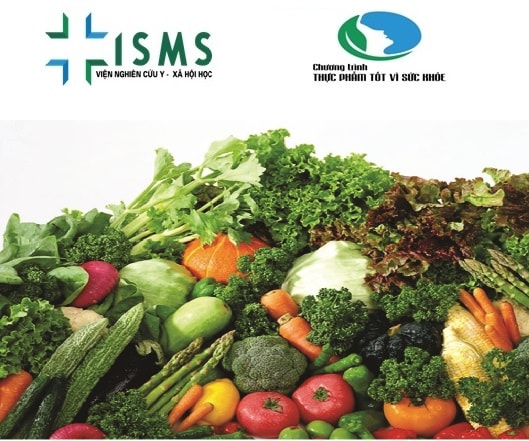Vegetables, tubers, fruits – The key to balance for overweight and obese children
Nutritional value and health benefits of plant-based foods, especially vegetables and fruits.
Vegetables, tubers, and fruits are a source of vitamins and minerals for the body to prevent micronutrient deficiencies, especially necessary for beautiful skin and good health. The vitamins in fruits have the advantage of being absorbed in large amounts because they are eaten fresh and are not lost during processing. Yellow and red vegetables and tubers such as large yellow peppers, tomatoes, carrots, green vegetables such as spinach, coriander, jute mallow, cauliflower, fresh onions; fruits such as oranges, lemons, tangerines, etc. are good sources of vitamin C. Beta carotene (provitamin A) is abundant in yellow, red, orange vegetables and tubers such as red peppers, carrots, tomatoes, mangoes, gac fruit, red persimmons, or dark green vegetables such as spinach, green onions, etc. When children eat more foods rich in provitamin A and vitamin C, they will be less susceptible to inflammatory diseases; Vitamins A and C play a prominent role in the anti-oxidation process and increase the body's immunity.
 |
| (Illustration) |
Dark green vegetables contain a lot of folic acid and vitamin K, which help to ensure the stable function of blood vessels. Vegetables and beans contain a lot of B vitamins such as B1 and B2, which are essential in metabolism, helping the body have beautiful skin and good digestion. Vegetables and fruits also contain a lot of alkaline minerals, especially potassium, calcium, and magnesium, which play an important role in many activities of the body and are necessary to maintain acid-base balance.
Vegetables also provide pectin, organic acids and fiber. The cellulose of vegetables has a smoother structure than the cellulose of cereals and is in a form linked with pectin to form a pectin-cellulose complex that regulates intestinal motility, prevents constipation, and helps eliminate cholesterol, preventing the risk of high cholesterol causing high blood pressure and atherosclerosis. This is a very important and necessary mechanism to prevent overweight and obesity.
So how to use vegetables and fruits in meals properly?
Vegetables, tubers and fruits are indispensable ingredients in a reasonable meal because they provide vitamins, minerals and fiber, but we need to pay attention to ensuring the balance between vegetables, tubers and fruits and other energy-producing foods (such as starch from cereals, protein from animal and plant foods, fat from oils, peanuts, sesame). It is important to remember that energy and nutrient needs vary with age, gender and physiological status: young children need to pay special attention to ensuring adequate amounts of energy-providing foods, protein and fat in addition to vegetables, tubers and fruits.
Regarding the need to eat vegetables, tubers, and fruits: For young children who are just starting to eat solid foods until they are one year old, the amount of vegetables gradually increases from 1 teaspoon/meal to 2 teaspoons/meal; children 1 - 2 years old: 30g of vegetables/meal; children > 2 - 5 years old: 50g of vegetables/meal. However, it is necessary to avoid the situation where children are malnourished but have too many vegetables in their meals, leading to energy deficiency, or overweight and obese children eat too few vegetables.
Regarding the need for ripe fruit, babies who are just starting to eat solid foods should eat about 50g/day, then gradually increase to about 100g/day when they are one year old, and children over 2 years old should eat about 150g - 200g/day.
For overweight and obese children, it is necessary to increase the amount of vegetables and fruits. You should eat a lot of boiled vegetables, soups, salads, and eat them at the beginning of meals to create a feeling of fullness. You should not let obese children eat a lot of sweet ripe fruits because they provide a lot of energy. You should eat a lot of fruits with less sugar such as cucumbers, melons, jicama, etc., for example 200-300g/day.
Some people think that to lose weight you should only eat vegetables and drink fruit juices. Is that true?
If the child (up to 19 years old) is still in the age of rapid development, the answer is no! Because the child needs to ensure balanced height and weight development, if only providing vitamins, fiber and minerals in the diet is not enough; Children still need protein, fat, energy to develop. Overweight and obese adults need to go to the doctor to determine the level of overweight and a diet with an appropriate calorie level, should not apply a diet that is too low in energy without the supervision of a doctor because it will be very dangerous due to high risks such as hypoglycemia, hypotension, as well as the risk of losing weight too quickly causing osteoporosis, gallstones...
Overweight and obese children or adults, in addition to increasing their intake of vegetables to reduce energy intake, should go to nutrition facilities for examination and advice on appropriate diet and exercise.
According to health.vadoisong






